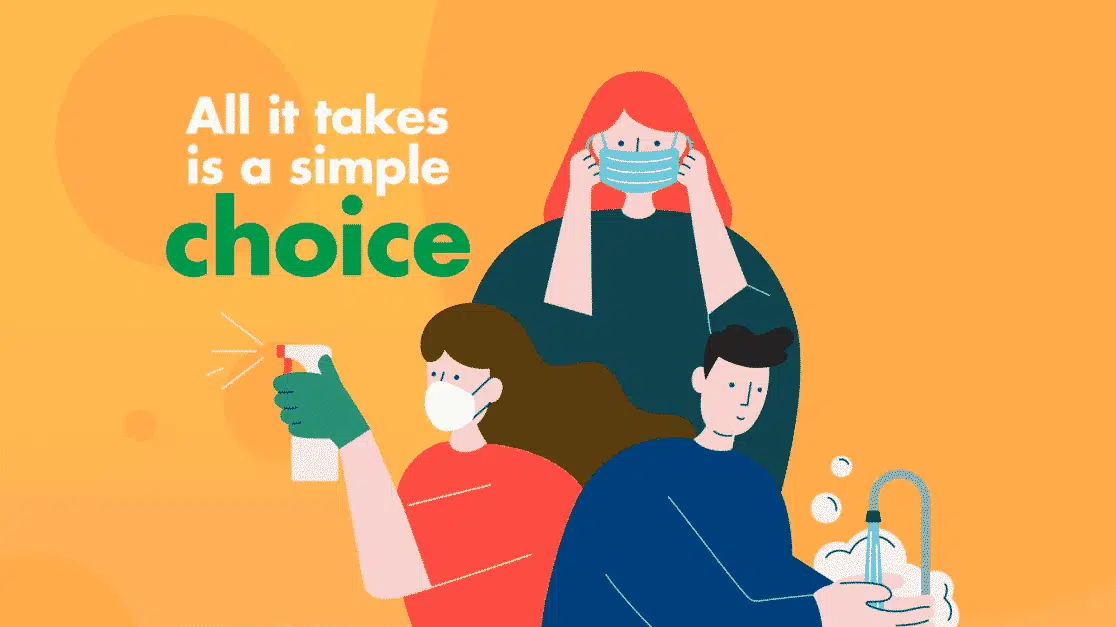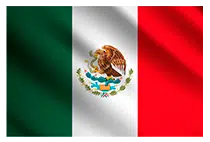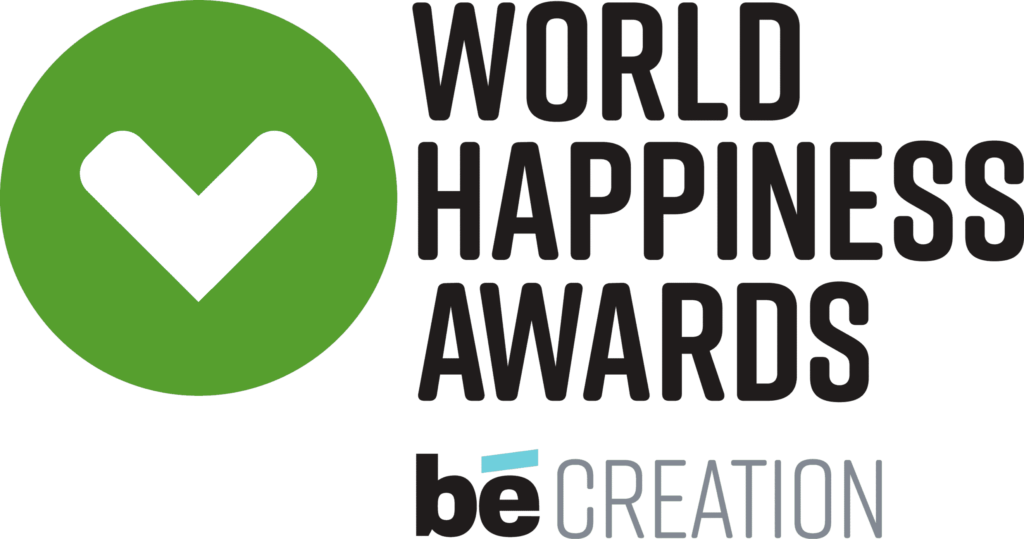See the Laureates 2023 - 2025
Laureates 2023 - 2025
When we create opportunities for underserved communities we are contributing to sustainable and healthy societies. We are looking for social good entrepreneurs and institutions that know what it takes to bring kindness, compassion, hope, and abundance to societies worldwide.
Social Impact
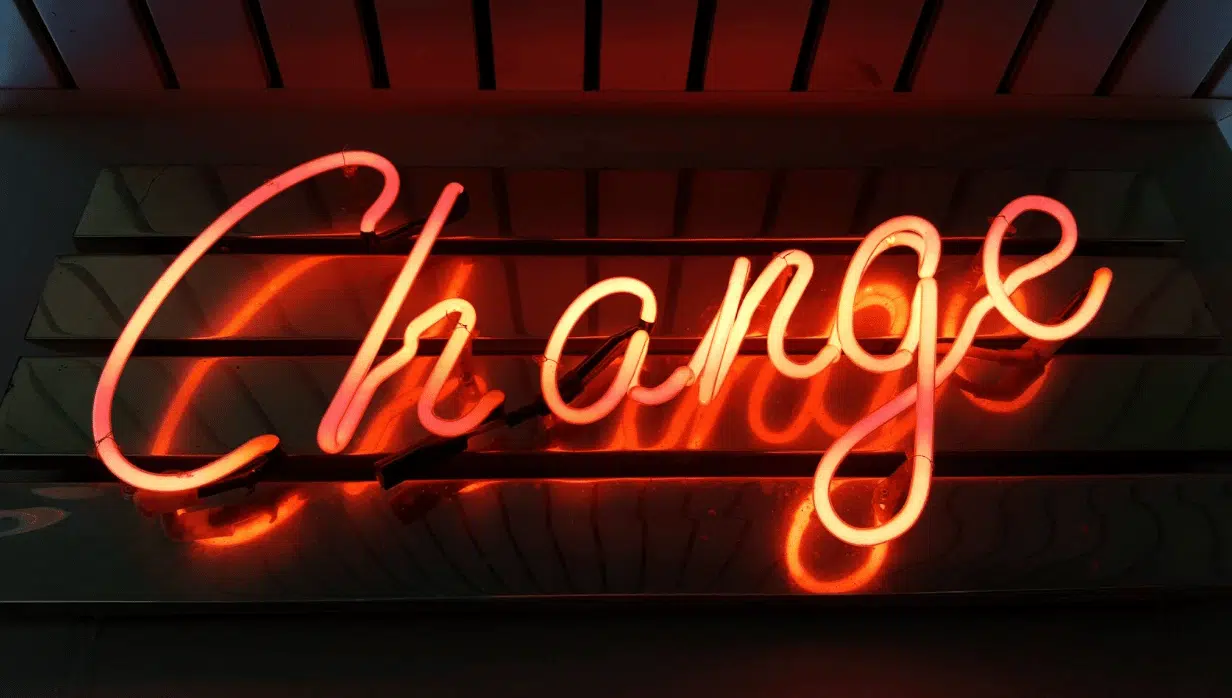
The Wellbeing Project
Community
The Wellbeing Project
Those working in social change tackle the world’s most urgent issues like climate change and inequality. But increasingly, these changemakers are facing chronic stress, depression, and burnout. The creation of the Wellbeing Project was inspired and prompted by a sense of caring, understanding, and compassion for these people who work hard to build a better world and support numerous causes and movements for which they work.
The Wellbeing Project is focused on both creating support for social change leaders and cultivating a shift in the culture of the field toward one that is healthier and supportive of inner well-being. It is a co-creation of six globally oriented social change institutions: Ashoka, Georgetown University, Impact Hub, Porticus, The Skoll Foundation, and Synergos. The project sits between, and is governed by, and in great measure implemented by its co-creators.
These institutions intend for the Wellbeing Project to ignite further action and continue the work of deeply and meaningfully supporting the well-being of experienced social entrepreneurs while shifting the field of social change and enhancing the lives of the millions of people touched by the efforts of these important changemakers. These institutions are committed to an open-access approach to everything learned and developed through the Wellbeing Project, as it fundamentally supports their intention to catalyze a meaningful shift in the field of social change.
With such intentions and seeing the journey and experience of the social entrepreneurs in the program as paramount, the four pillars of the Wellbeing Project are:
Inner Development Program – Supporting experienced social entrepreneurs in finding and nurturing a deeper sense of well-being within themselves through a personally supportive program
Research – Conducting a research evaluation that explores the effect of inner work, and connections between inner work and the quality of social change
Learning Partner Program – Convening a Learning Partner Community of global social sector leaders who will learn together from the research and what, as a result, may be done at a sector level
Story-telling – Collecting and broadly sharing stories from social entrepreneurs about the impact of inner work on their personal and professional lives.
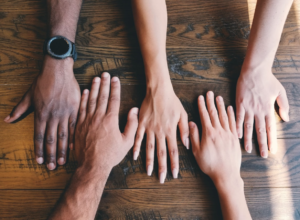
The Wellbeing Project’s community consists of:
Ecosystem Network – A network of 70 global, regional, and local organizations working in the social change field with interest in learning and sharing the topic of well-being to bring this back to their organizations and communities;
Learning Partner Group – A group that engages leaders of key global institutions in the world of social change to learn and help develop well-being-related work within their networks as well as explore what support can be provided to broaden the well-being of people in the field of social change;
Wise Network – The Wellbeing, Innovation, and Social Change in Education (WISE) Network inspires and facilitates a culture of inner well-being in the social change field by educating graduate and undergraduate students.
We are inspired and amazed by the work this organization does. That’s why we are proud to see them as this year’s World Happiness Award laureates. Join us in our celebration of people and communities, making this planet a better place for all!

Dr. Vandana Shiva
Individual
Dr. Vandana Shiva
Dr. Vandana Shiva was born in Uttaranchal, in the Indian Himalayan region, to a father who was a forestry official and a mother who was a farmer. As she says, she was born and bred between the forest and the farm, where her family worked with and for biodiversity.
As she grew up, she noticed that the continuity between the forest and the farm she knew so well was declining because of entities actively working on destroying this precious environment. Before moving to Canada to pursue her Ph.D. in quantum physics, Dr. Shiva went on a trek through her childhood Himalayan forests, where she noticed that there were no forests to be found and the stream there was now just a trickle. This was a harsh wake-up call for Dr. Shiva and an event that will set her on a life-long path of activism and food sovereignty advocacy, where her passion for nature and her interest in science could combine for the higher good.
Soon she joined the Chipko movement, a world-renowned forest conservation movement from her Uttarakhand region. This is what further moved her ecological and environmental activism. In the next five decades, she has published dozens of books that showcase this evolution, among which are ‘Biopiracy: The Plunder of Nature and Knowledge,’ where she talks about the appropriation of the biological wealth of poorer countries by global corporations, and ‘Water Wars: Privatization, Pollution, and Profit,’ where she criticizes corporations for wanting to privatize water resources.
Dr. Shiva is perhaps best known as a critic of Asia’s Green Revolution, an organization whose operations led to pollution, a loss of indigenous seed diversity, and the dependence of local farmers on costly chemicals. In response to this, Dr. Shiva founded the Research Foundation for Science, Technology, and Ecology (RFSTE) and established seed banks throughout the country to preserve its agricultural heritage. She also launched Navdanya, a project that strives to combat the monoculture promoted by large corporations.

With her work, Dr. Shiva is trying to promote non-violent farming practices that contrast monoculture and war violence. She points out that the chemicals and pesticides used in fertilizer for large-scale agriculture are often used in warfare, so it is not surprising that their use leads to biodiversity loss and habitat destruction. “I want to show that there’s one health,” Dr. Shiva says. “The health of the planet and our health are the same. The health of the plants and our gut is the same health. One indivisible health. That is ecological health, the health of justice. That health is of diversity working together.”
Dr. Vandana Shiva is a distinguished physicist, ecologist, writer, and activist, but most of all, she is a tireless defender of the environment. We are incredibly proud that she is one of the World Happiness Awards laureates. Join us in our celebration of people and communities, making this planet a better place for all!
We refer to Arts as any artistic expression that brings happiness, joy, and energy to communities and societies. From performances to architecture, music, dance, theater, photography, painting, drawing, sculpture, the list is endless. We welcome any creation that sparks dreams, imagination and community building.
Arts
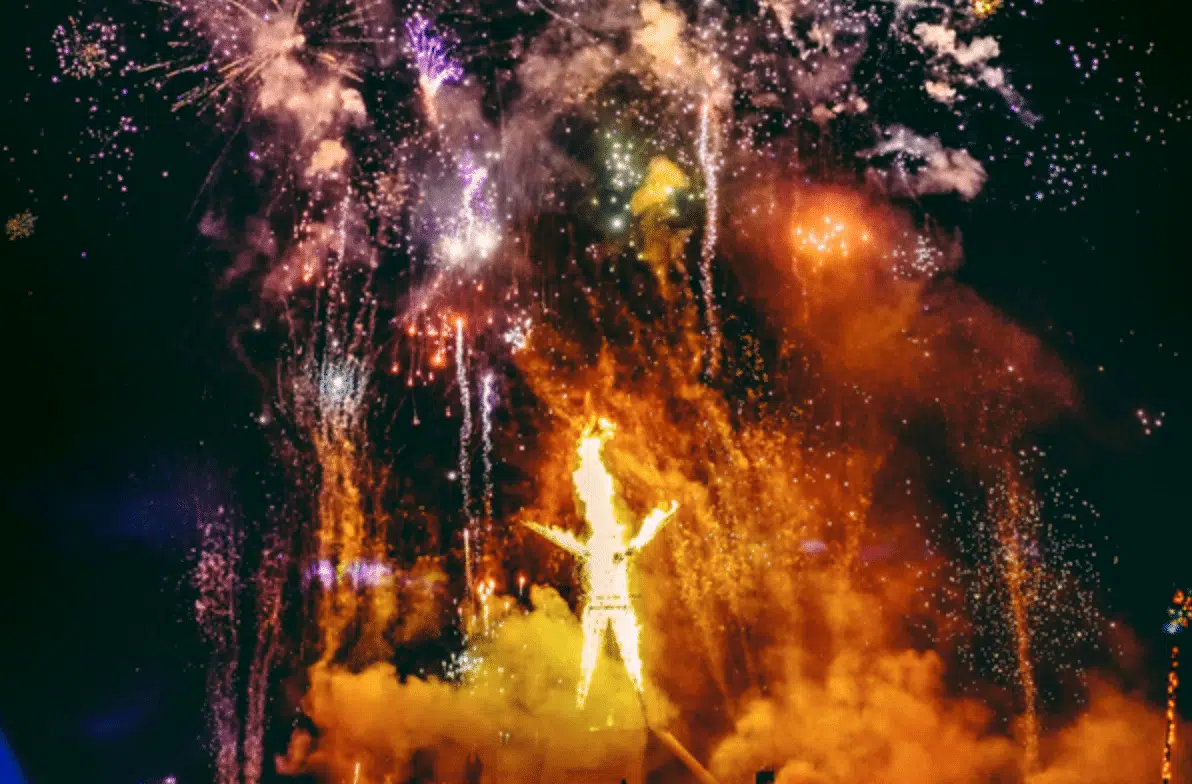
Burning Man
Community
Burning Man
Those who have heard of Burning Man but never experienced it personally would probably describe this event as a days-long wild rave deep in the Nevada desert. Although Burning Man is fun, with lots of music, interesting people, and amazing art installations that look like something out of the Mad Max universe, that’s not all that this event is.
Burning Man is a week-long, self-organized gathering of thousands of creative people that convene in Black Rock City, a town that exists for only seven days each year, during this radical gathering experience. The temporary metropolis is notable for its massive and daring artworks, incredible performances, and radical self-expression. But most importantly, it is known for its influence on numerous real-world activities during the rest of the year through its Burners Without Borders NGO, which initiates civic work projects and disaster relief in communities worldwide.
Burning Man is an event of considerable size that required its creators to develop a specific cultural ethic to successfully manage this self-governing community of individualists. So, in 2004, Burning Man founder Larry Harvey came up with his ‘The 10 Principles of Burning Man‘ to serve as guidelines for the community. But these principles can be applied beyond Burning Man’s borders and be used as a catalyst for innovation and culture change around the world. The principles, when applied to our communities, can look like this:
Radical Inclusion – Everyone can be a part of the community
Gifting – Giving selflessly without the expectation of getting something back
Decommodification – It’s not what you have but who you are that matters. You don’t need any material thing to be worthwhile
Radical Self-reliance – Being able to rely on yourself and your inner strengths and resources
Radical self-expression – We all have our unique gifts, and we should all respect them as well as the liberties and rights of others
Communal Effort – Collaboration breeds innovation, and innovation advances society
Civic Responsibility – Taking accountability for public welfare
Leaving No Trace – Respecting the environment
Participation – Active participation in society
Immediacy – Learning to focus on the now
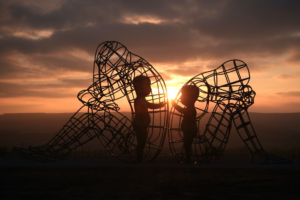
A society that is more giving, more inclusive, worried less about personal success and gain, and more about the gain of society as a whole is both self-reliant and more collaborative, devoted to leaving the world in a better state than we found it. A society where everyone is working towards this cannot be anything but a flourishing and fulfilling one. Organizations, companies, and governments who follow this idea are more likely to be the creators of a better world for us all. Because of this, we are proud to see this ground-breaking movement as one of our laureates for the 2022 World Happiness Awards. Join us in our celebration of people and communities, making this planet a better place for all!
Louie Schwartzberg
Individual
Louie Schwartzberg
For over 40 years, Louie Schwartzberg, the famous cinematographer, director, and producer, has been making art that celebrates life and the human spirit. A pioneer of high-end time-lapse cinematography, Louis has been pouring passion, knowledge, and love into his work to provide breathtaking imagery that reveals the mysteries and wisdom of nature, people, and places.
Born to Holocaust survivors, Schwartzberg has been taught from an early age the importance of living a life of gratitude. His parents instilled in him an appreciation of the little things in life, so it was no wonder he started taking pictures of flowers and mushrooms as soon as he got his first camera. After graduating from UCLA, Schwartzberg began to shoot flowers non-stop, and to this day, his time-lapse cameras are still rolling. This was the beginning of his life’s work with which he took the world on a journey of time and scale by making invisible – visible.
Throughout his career, Louie brought such tiny creatures as hummingbirds, bumblebees, and butterflies to the big screen, showing us how these nature’s wonders exist and persevere in this big world. His name is behind impressive projects like ‘Wings of Life‘ and the ‘Mysteries of the Unseen World.’ The first is a documentary that focuses on pollination and the web of life, narrated by Meryl Streep, while the latter is a 3D IMAX film with National Geographic, which shows us ‘the invisible worlds that are too slow, too fast, too small and too vast for the human eye to see,’ narrated by Forest Whitaker. Schwartzberg is also the creative brain behind ‘Fantastic Fungi’ and the ‘Moving Art‘ videos, designed to educate, inspire, and evolve the human perspective on the world.
During the challenging times of the global pandemic, Schwartzberg was deeply moved by how society was spiraling into loneliness and social isolation. The small things we all took for granted, like hugging a family member or meeting a friend, became impossible to us, furthering our disconnection. Wanting to address the global suffering from stress, anxiety, and isolation due to the pandemic, Schwartzberg decided to make ‘Gratitude Revealed’, a series of short movies that explore the multifaceted virtues of gratitude. With these short films, Schwartzberg highlights the beauty in humanity and the resilience of the human spirit, and most importantly, its desire to (re)connect with others. As Schwartzberg explains, the film allows us to open our hearts, see each other with compassion and understanding, and build bridges with those who think differently. It also allows us to understand gratitude’s vital role in our lives.
For Louie Schwartzberg, the greatest satisfaction is creating works that can positively affect the planet’s future. For this and other reasons, we are proud to see this talented man and his important work as a World Happiness Award laureate for 2022. Join us in our celebration of people and communities, making this planet a better place for all!

Silvia Parra
Individual
Silvia Parra
As a visionary and leader in the field of art and social well-being, Silvia Parra has transformed the perception of art through her profound ability to generate well-being, inspire, and unite people in a creative and unique manner. Through her innovative projects “Mandalas for Peace” and “Soulartnow,” the award-winning artist has managed to fuse art with social and ecological well-being in a singular way, promoting a positive and lasting impact on communities worldwide.
Mandalas for Peace This revolutionary project, a special guest at the last two Miami Happiness Festivals, merges art and healing power to offer unity, self-knowledge, and connection with peace and happiness in freedom. Silvia Parra’s initial inspiration was to artistically conceive a means to protect schools from bullying and aggression, bringing participants together to co-create collective mandalas. The project has evolved in other contexts and expanded globally, bringing its message of harmony to diverse cultures and communities.
Inspired by the diversity and interconnection of all forms of life, “Mandalas for Peace” creates collaborative works that nurture spaces and leave an energetic pictorial mark that radiates peace and well-being. These creations, aligned with the World Happiness Foundation’s Metapets, become a universal language that transcends cultural differences and builds bridges of understanding. By uniting “Mandalas for Peace” with Metapets, a powerful synergy is achieved where each mandala not only represents the harmony of the universe but also incorporates the essence and wisdom of the Metapets. This union enriches the artistic and spiritual significance of the works, promoting values of coexistence and respect for diversity.
Soulartnow Soulartnow has distinguished itself with its innovative approach to transforming common spaces into authentic energized artistic environments that not only beautify but also inspire and uplift the spirit of those who experience them. Under the visionary direction of Silvia Parra, Soulartnow has revolutionized spaces in hotels, schools, and universities and has now expanded to hospitals, airports, residences, and other public and private spaces. The conscious art used by Soulartnow explores crucial themes such as the environment, sustainability, equality, and diversity, creating works that not only capture the eye but also resonate deeply, fostering an environment of well-being, happiness, and sustainability.
Contributions and Recognitions Silvia Parra’s outstanding artistic management and curation in recent years have visibly propelled the growth and impact of these projects. Her leadership has facilitated collaboration among artists and generated opportunities that transcend borders, significantly contributing to the World Happiness Foundation’s mission to promote happiness, sustainability, and global well-being through art.
What distinguishes “Mandalas for Peace” is its unique energetic component, a quality that Silvia Parra imbues with unparalleled mastery. Each mandala is a vibrant work that transcends the visual and resonates deeply within those who contemplate it, creating a holistic experience of peace and serenity. This energy, subtle but powerful, transforms both spectators and spaces, radiating a sense of well-being that only Silvia’s art can achieve.
Future and Commitment Parra’s futuristic vision and commitment have made Soulartnow a global benchmark in integrating art as a catalyst for change and well-being. This award recognizes her exceptional contribution to art, well-being, and sustainability, celebrating her positive and lasting impact on communities around the world.
The World Happiness Foundation has considered Silvia Parra’s active participation as an arts leader across the foundation’s spectrum to be of utmost importance. Her focus on art as an essential tool to achieve the foundation’s goals for 2050—10 billion free, happy, and conscious people—is vital. Parra has demonstrated that art can be a unifying and transformative force, capable of inspiring significant social changes, promoting a deep sense of peace and well-being in communities, and fostering awareness and action towards sustainability.
“Mandalas for Peace” and “Soulartnow” exemplify how art can be a powerful tool for social change, promoting positive values such as discipline, respect, collaboration, and sustainability. These projects not only nurture the human spirit but also instill values that promote social and environmental justice, making us better global citizens.
Silvia Parra is a pioneer in the visual-energetic realm, known worldwide for developing a unique vision where her artworks are living entities designed with intentional aspects that embody coherence, well-being, balance, expansion, and happiness. These works transform the spaces they occupy into energetic vortices, elevating the consciousness frequency of viewers. Exposure to such higher frequencies offers infinite possibilities for healing, awakening consciousness, and growth.
Silvia has dedicated her life to exploring and studying the healing power of the arts. With international training integrating innovation in the diversity of trends in painting, multimedia, and artificial intelligence applied to art, from the realistic to the imaginative, her artistic journey began in Venezuela, where she studied with internationally renowned masters. Currently, as an active member of the World Happiness Foundation, she leads and has curated numerous artistic projects, enriching her work with extensive knowledge in healing, quantum physics, and neuroscience applied to art.
For her exceptional contribution to art, well-being, and sustainability, for a happy and peaceful world, we celebrate and honor “Mandalas for Peace” and “Soulartnow” with the International Well-being Award 2024. Join us in celebrating people and communities that make this planet a better place for all.
Soulartnow Website: soulartnow.com
Systemic change happens through Public Policy as it can determine social happiness and well-being for long periods of time. There are incredible public policy developments happening at all levels of governance and we want to say thank you.
Policy Making
The Organisation for Economic Co-operation and Development
Community
The Organisation for Economic Co-operation and Development
In recent years, concerns have arisen questioning the inadequacy of macroeconomic data, such as the GDP, in depicting the living conditions of ordinary people.
Although these concerns were already apparent throughout the years of strong growth and good economic performance that defined the beginning of this decade, the financial and economic crisis has exacerbated them.
For over a decade, the Organisation for Economic Co-operation and Development (OECD) has been working hard to find better ways to measure the progress of societies, moving beyond GDP and exploring those areas that matter to people’s lives.
In 2011, on the organization’s 50th anniversary, the OECD launched the Better Life Initiative to identify key dimensions of people’s life (besides income levels), such as reducing inequalities, improving quality of life, and preserving social and environmental capital. The ultimate goal was to make a comprehensive set of indicators for citizens and policymakers that encompass different areas that matter for people’s lives now and in the future.
The OECD developed a well-being and progress framework featuring eleven dimensions of human well-being. Aside from people’s income, these included:
- Wealth
- Jobs and working conditions
- Health and skills
- Time devoted to family and friends
- Ties with people in their communities
- Capacity to act as an informed citizens
- The quality of the environment
- Experience of violence and victimization
- Feelings and life evaluations
For over twelve years, the OECD’s ‘How’s Life? Measuring Well-Being‘ report has been charting whether life has improved for people in thirty-six OECD countries (plus Colombia) and four partnering countries. The most recent 2020 edition reports that:
In many ways, life has improved in several aspects relative to 2010. People are living longer and safer lives; the average homicide rate has decreased by a quarter, and people feel safer walking alone in their neighborhoods. Employment rates are higher, as well as incomes, and people are more satisfied with their lives.
Nevertheless, disconnection, insecurity, and despair impact significant parts of the population:
- Over one-third of the population would fall into poverty if they lost three months of income
- Since 2010, average household wealth has declined by 4%
- On average, Americans spend over 30 minutes fewer per week interacting with friends and family
- One in eleven people cannot rely on family or friends for help in times of need
- On a typical day, one in eight people experience more negative than positive feelings
- Suicide, acute alcohol abuse, and drug overdose deaths are three times higher than traffic fatalities
Meanwhile, inequalities in well-being persist with:
- People in the top 20% of the income distribution make five times more than those in the lowest 20%
- When both paid and unpaid work is considered, women work 25 minutes longer than males every day
Improvements in the well-being of individuals and families characterize societal progress. To evaluate such progress, it is necessary to consider not only the functioning of the economic system but also the different experiences and living conditions of people.
What the OECD does is incredibly important, as they are dedicated to improving people’s quality of life via thorough research and sound policymaking. Their mission is to develop policies that promote prosperity, equality, opportunity, and well-being for all. We are proud to have this organization as one of our World Happiness Awards laureates. Join us in our celebration of people and communities, making this planet a better place for all!
Sanna Marin
Individual
Sanna Marin
When Finnish Prime Minister Sanna Marin first took office in December 2019, it was hailed as a momentous event. Not only has she become the world’s youngest leader at the age of 34, but she also ushered in a new era of leadership for a modern, dynamic, and progressive Finland.
Marin’s famous coalition government, made up of five parties led by young, millennial women (four out of five party chiefs aged under 35), represented a breath of fresh air to the current political status quo. But Marin didn’t have much time for celebrations.
Just a couple of weeks into her role as Prime Minister, she faced a worldwide health crisis. When the World Health Organization declared the COVID-19 outbreak in March 2020, Marin was ready to put her action plan in motion and keep her country safe. Despite the unprecedented challenge she had to face so early into her PM career, Marin showed she had what it took to lead the country in a time of turmoil.
But Marin wasn’t anything typical, to begin with. From an early age, she was aware of her family’s financial problems and didn’t shy away from responsibility. She worked multiple jobs to support her mother and undertook to be the best she could be in school, eventually becoming the first member of her family to attend university.
As she once said in an interview: “My background influenced how I saw society, how I saw the equality between people. I decided to enter politics because I thought that the older generation wasn’t doing enough about the big issues of the future. I needed to act.”
That’s why pressing social issues such as gender equality, parity, homelessness, refugee support, welfare, and climate crisis are at the heart of her political agenda. She is also an active promoter of the economy of well-being that her government is implementing.
The economy of well-being is a decision-making approach that enables countries to achieve a better balance between the social, economic, and ecological dimensions of sustainable development. It creates opportunities to increase the well-being of people and support a sustainable economy at the same time.
The well-being economy can be defined in terms of material (housing, income, jobs) and quality of life factors (education, health, competence, and safety). For these factors to be realized, social, economic, and ecological sustainability must be established.
In plain words, the well-being economy is an investment in future generations. Social sustainability is realized when everyone has a sufficient income, safety, well-being, and healthcare services and when every person can fairly access resources and opportunities and influence their own lives.
It cannot be realized without inclusion, gender equality, community, and active social engagement. The ultimate goal of this approach is for well-being to be distributed equally to all, and that’s precisely why Sanna Marin wants to implement it in Finland.
The tenacity and determination to make her country a better place for all puts this inspiring politician among our World Happiness Awards laureates. Join us in our celebration of people and communities, making this planet a better place for all!
We want to recognize leaders within institutions and organizations that are creating conditions for employees and staff to feel good at work. Happiness is not a KPI, it is an essential state of mind and we want to acknowledge the people that are helping others flourish at work.
Work
Indeed
Community
Indeed
When Indeed launched for the first time its Work Happiness Score in March 2020, it had one simple but radical goal – to give job seekers a window into worker well-being. In doing so, they’ve managed to create the world’s largest work happiness study and accumulated the largest data set on employee well-being in the world.
In order to calculate the Work Happiness Score, Indeed has created a survey to measure people’s experiences at work. So far, the survey has been taken by more than ten million US employees and counting. The survey asks people if they feel happy at their place of work, but it also dives deeper into examining how stress, flexibility, learning opportunities, and other key dimensions impact their experiences.
Guided by prominent happiness and well-being experts such as Sonja Lyubomirsky, a distinguished professor of psychology, and Dr. Jan-Emmanuel de Neve, a professor of economics at Oxford, Indeed Work Happiness data highlights the important characteristics that contribute to well-being at work. The data includes:
- Inclusion – Is my company respectful of all people?
- Trust – Do I feel psychological safety and trust those around me?
- Flexibility – Do I have the time and location flexibility I need?
- Support – Do I feel supported and encouraged by my coworkers?
- Belonging – Do I feel I fit in? Do I feel accepted by others?
- Appreciation – Am I valued as a person?
- Learning/Growth – Am I gaining new skills and experiences through work?
- Fair pay – Do I feel reasonably compensated for my work?
- Manager support – Does my manager give me the support I need to succeed?
- Satisfaction – Do I feel content with my work and how it fits into my life?
- Energy – Do I feel invigorated by work tasks?
- Stress – Do I feel manageable and appropriate stress levels?
- Accomplishment – Do I feel like I am hitting my goals and making things happen?
- A sense of purpose – Is my work meaningful? Do I feel like what I do matters?
By sharing their experiences openly, job seekers can better understand what it’s really like to work at a certain company. What drives one person’s well-being at work might not be the same for someone else. For instance, a person looking for a welcoming work environment should look for companies that rank high in inclusion. Or, if someone values professional growth, they should find a company where workers report a high learning score.
The Work Happiness Score also helps business owners understand how their workers actually feel and empowers them to create a happier workplace and stronger employer brand. That is why Indeed continuously gathers and displays this data on thousands of public employer profiles, providing transparency on worker well-being.
If you’re wondering why this matters, consider that most of us spend one-third of our adult lives at work. Most of our time and emotional capital is invested in our jobs. We should look for positions that mean more than just the money it pays. That begins with working for a firm that helps you flourish.
Because of this important initiative that inspires companies to foster environments where people can thrive and positively impact their lives and the world at large, we are proud to see Indeed as one of our World Happiness Awards laureates. Join us in our celebration of people and communities, making this planet a better place for all!
Yvon Chouinard
Individual
Yvon Chouinard
“Despite its immensity, the Earth’s resources are not infinite, and it’s clear we’ve exceeded its limits. But it’s also resilient. We can save our planet if we commit to it.”
This is how Yvon Chouinard, the founder of Patagonia, a well-known outdoor clothing company, and the self-proclaimed “existential dirtbag,” ended one very important letter to his staff, customers, and the public in September 2022.
In the letter, Chouinard announced that he was giving away all of his shares to a trust and a nonprofit dedicated to fighting environmental crises and defending nature. Patagonia, the famous outdoor gear company, is worth $3 billion.
As Chouinard explains, instead of going public, they are going purpose. This means rather than selling the company or taking it public, they have decided to transfer the company’s voting and nonvoting stocks to the Patagonia Purpose Trust and the Holdfast Collective, respectively.
With this specially designed trust and a nonprofit organization, they can preserve the company’s independence and values and ensure its yearly profits are used to fight the climate crisis and protect undeveloped land worldwide.
However, this incredible move is unsurprising to those who know this charismatic but reluctant businessman, a passionate climber, surfer, environmentalist, and philanthropist. For the past five decades of Patagonia’s existence, he used the company as an important resource for social and environmental activism.
The story of Patagonia started in the early seventies when Chouinard brought a couple of rugby shirts from his trip to Scotland and sold them to his climber friends. They’ve already loved buying climbing gear from Chouinard, which he made himself in a blacksmith shop (an actual chicken coop!) in his parent’s backyard.
The success was inevitable once he expanded into other clothing and equipment for climbing, making this adventurer, a man who spent 200+ days in a year sleeping under the open sky (he famously didn’t own a tent until he was forty), a successful businessman of a billion dollar company. However, as he once said, if he were going to be a businessman, it would be on his own terms.
In 1985, Patagonia started setting aside 1% of its sales or 10% of profits (whichever is greater) to finance grassroots environmental groups in the US and worldwide.
In the nineties, after one environmental audit revealed the harsh truth of corporate cotton and its heavy environmental footprint, Patagonia switched to using all organic cotton.
In the early two-thousands, Chouinard established ‘1% for the Planet’, making Patagonia the first business to commit 1% of its annual sales to the environment.
These are just some examples of this inspiring man’s dedication and devotion toward the planet and nature itself. With his latest act, Chouinard hopes not just to make a positive change in the world but also to prompt others to do the same.
He hopes he will positively influence customers and businesses to prioritize fighting the environmental crisis and change the system along the way. As he says himself: “If we have any hope of a thriving planet – much less a business – it is going to take all of us doing what we can with the resources we have. This is what we can do.”
We are proud to have this tenacious sportsman, philosopher, environmentalist, craftsman, and innovator as one of our World Happiness Awards laureates. Join us in our celebration of people and communities, making this planet a better place for all!
We love Happiness Research! Thanks to modern science we are able to bring validated tools, techniques, and resources to help people thrive, rather than just survive. We know how much effort and time goes into research studies and we want to award that hard and Incredibly important work.
Research
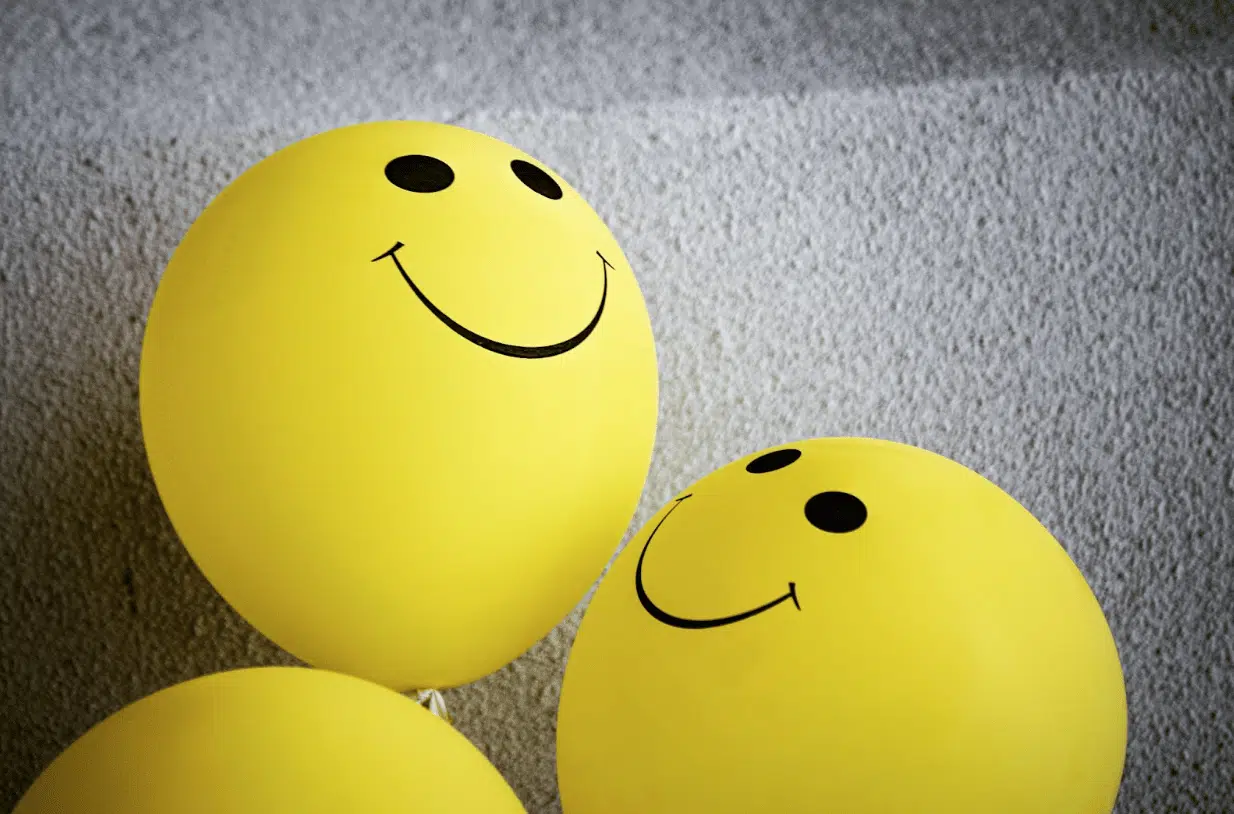
World Happiness Report
Community
World Happiness Report
This year marks the tenth anniversary of the World Happiness Report, a publication of the Sustainable Development Solutions Network (SDSN), powered by the Gallup World Poll data, which uses global survey data to report how people evaluate their own lives in more than 150 countries worldwide. The first report was published in 2012; since then, Gallup’s World Poll has been a primary source of global data behind the life satisfaction rankings released in the report.
It all started in 2011 when the UN General Assembly adopted resolution 65/309 Happiness: Towards a Holistic Definition of Development, inviting countries to measure the happiness of their people and use that data to guide public policy. This was followed by the first UN High-Level Meeting called Wellbeing and Happiness: Defining a New Economic Paradigm, chaired by UN General Secretary Ban Ki-moon and Prime Minister Jigmi Thinley. And so the first World Happiness Report was issued, outlining the state of world happiness, causes of happiness and misery, and policy implications. Since then, World Happiness Report has been issued annually, drawing international attention.
In the World Happiness Reports, experts in economics, psychology, national statistics, and survey analysis describe how measurements of well-being can be used to assess the progress of world nations, among other important topics. Every report is divided into chapters that delve deeper into happiness, mental health, benefits of happiness, policy implications, the importance of ethics, and links with OECD’s approach to measuring subjective well-being and other national and international efforts.
Despite world issues like the pandemic and the breakout of war in Ukraine, the latest World Happiness Report shines a bright light in dark times. The report offers three useful insights into promoting human well-being and welfare and how brands can positively impact people’s lives today. Based on a global survey of 119 countries, the World Happiness Report ranks countries by the happiness of their citizens, which is defined in terms of experiencing life positively. As seen before, Northern European countries are on top, with Finland and Denmark being the countries where people are at their happiest. At the bottom of the list are war-torn Afghanistan, Lebanon, and Zimbabwe. It is good to note that the data was collected before the escalation of the Russo-Ukrainian war.
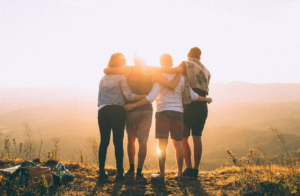
One of the most promising findings of this year’s report is that it reveals the remarkable resilience of humans in the face of crisis and catastrophe. Despite the pandemic and its consequences, global happiness levels haven’t dropped significantly. The report notes that some of this resilience is down to human genetics, where people have the natural ability to see the positive in life despite dark times. For brands, the most useful insights come from data analytics which can be used as an outline for how brands can make a positive change in people’s lives. They are: (1) Benevolence drives well-being, (2) Freedom is key, (3) Money and health matter.
Every year we are fascinated and inspired by the hard work of the World Happiness Report researchers, and we couldn’t be more proud that they are one of this year’s World Happiness Awards laureates. Join us in our celebration of people and communities, making this planet a better place for all!
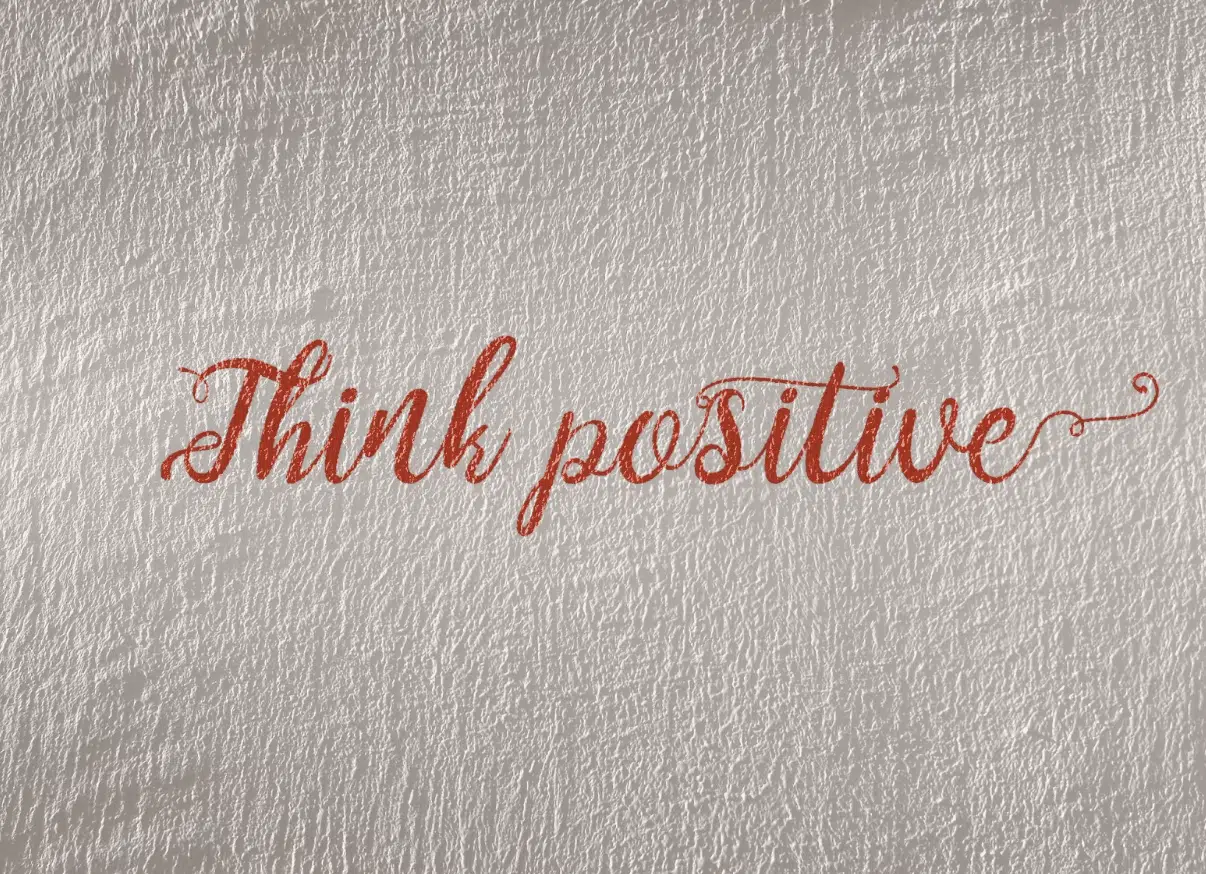
Martin Seligman
Individual
Martin Seligman
Known as the father of positive psychology, Dr. Martin E.P. Seligman is an award-winning American psychologist, lead educator, researcher, and author of over 30 bestselling books that make positive psychology accessible to everyone. Seligman is the Zellerbach Family Professor of Psychology in the Penn Department of Psychology and the Penn Positive Psychology Center director. He was also the President of the American Psychological Association in 1998, during which he promoted positive psychology as a field of scientific study.
While researching learned helplessness, Seligman discovered this to be a psychological condition in which humans or animals would behave or act helplessly in unpleasant or harmful situations, even when they had the power to change their circumstances. He saw a similarity with chronically depressed patients and argued that clinical depression partly results from a perceived lack of control over the outcome of the unpleasant situation.
In 2000, Seligman founded the field of positive psychology. Since then, he has devoted his time, knowledge, and career to furthering the study of positive emotion, positive character traits, and positive institutions. In collaboration with Christopher Peterson, Seligman created a counterpart to the Diagnostic and Statistical Manual of Mental Disorders (DSM), called ‘Character Strengths and Virtues.’ In contrast to the DMS, which points out what can go wrong, Seligman and Peterson wanted to point out what can go right.
Positive psychology is a fascinating field that examines what makes people thrive. The idea hit Seligman during a conversation with his daughter. Until that moment, modern psychology mainly focused on human weaknesses and suffering, the things that were wrong with us, and how to fix them. Talking with his young daughter, Seligman realized that we wouldn’t purposefully raise our children by focusing solely on their weaknesses. We would also want to understand their strengths and how to boost them. He decided that psychology should do the same – it should invest as much in figuring out what makes us happy as it does in studying what makes us sad.
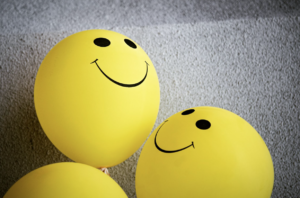
Up to that point, there was little science to back this theory up, so Seligman had to bring an organized focus to this area of research. As he explains: ‘I created a big tent that brought a large number of researchers together and mainstreamed their work into psychological science.’ His findings were eventually described in his book ‘Authentic Happiness,’ where he talks about three dimensions of happiness that can be cultivated:
- Pleasure (the pleasant life) – instant gratification which contributes little to real happiness
- Engagement (the good life) – the feeling of flow when we do things we’re good at
- Meaning (the meaningful life) – the fulfillment we get from being engaged in an endeavor greater than ourselves.
Due to his tireless work, the field of positive psychology has flourished, with more than a dozen conferences held on the subject every year and even more courses taught at universities worldwide. We are proud to see this inspiring and eminent psychologist, educator, and researcher as one of our World Happiness Awards laureates. Join us in our celebration of people and communities, making this planet a better place for all!
Robert Waldinger
Individual
Robert Waldinger
What is the secret to happiness? Are we predisposed to be happier based on our genes? Or is there a way we can increase our happiness by making better life choices?
In 1938, scientists began tracking the health of 268 Harvard students hoping to gain insight into what helps us lead happier and healthier lives. And the study has continued over the last eight decades, making it the longest study on happiness. The research has studied the lives of the participants, including the highs and lows of their careers and relationships. Over the decades, the control groups have expanded. And the findings have been surprising and enlightening.
Clinical Professor of Psychiatry at Harvard Medical School Dr. Robert Waldinger is the project’s director. Dr. Waldinger is also the Director of the Center for Psychodynamic Therapy and Research at Massachusetts General Hospital, and Director of the Harvard Study of Adult Development. He says that “our relationships and how happy we are in our relationships has a powerful influence on our health”. Dr. Waldinger says, “Personal connection creates mental and emotional stimulation, which are automatic mood boosters, while isolation is a mood buster.” He adds, “Taking care of your body is important, but tending to your relationships is a form of self-care too. That, I think, is the revelation.”
Another one of Dr. Waldinger’s observations on the key to happiness based on the research involves our changing mindset as we get older. Dr. Waldinger shares that as we grow older, we tend to realize how short life is and are more likely to pay attention to what makes us happy. Dr. Waldinger says, “When you are older you have more opportunity to return to the activities you associate with happiness.” For some people, this could mean engaging in a hobby they once loved as a child. For others, it could be recognizing the opportunity to let go of toxic relationships and instead, only surround themselves with positive people and interactions.
The research led by Dr. Waldinger is significant because it tells us how our relationships with our family, friends, social circles, partners, and community have a strong impact on our happiness and health. And the choices we make regarding who to engage with, connect with, and socialize with can influence how happy we can be throughout our life. Being happy is so much more than good mental health and well-being. Happiness can help us become physically healthier. Happiness protects our health by helping us sleep better, lowering our risk for cardiovascular disease, and leading us toward healthier behaviors. Positive emotions such as happiness combat stress, strengthen the immune system and improve chronic conditions – which help lengthen our lives.
Currently, Dr. Waldinger is studying the over 2000 children of the men involved in the original study. The research includes an examination of their childhood experiences and their impact on their health and well-being. Also in 2023, Dr. Waldinger answers the question “what does ‘the good life’ look like?” and will make the findings of the Harvard study public through his book, The Good Life, which will be available on January 10th, 2023.
Have you contributed your nominations to the World Happiness Awards yet? Join us in our celebration of people and communities, making this planet a better place for all!
We need communications and news that bring positivity and hope to our lives. There is good news happening most of the time around the world, but it looks like we are inundated by the opposite. We want to award institutions and individuals that are able to inform while creating conditions to go beyond fear and anger.
Communications
La Cara Buena del Mundo
Community
La Cara Buena del Mundo
The more we try to keep up with the latest news, the more we find ourselves sad. It seems like wherever we turn, only bad things happen, and when bad news piles up, it can be very difficult to resist getting bogged down by it all.
It’s clear to see how a news cycle that is constantly updated 24/7 and readily accessible on devices wherever we are in the world can significantly influence our mental health and leave many of us feeling anxious and depressed.
And who would blame you for feeling so? Just look at the current state of affairs in the world: the Ukraine war, COVID-19, mass killings, racism, political conflicts, you name it. It’s no wonder many people choose to stop reading or watching the news anymore. News fatigue turns to news avoidance in no time.
María Díaz was the same. Amid the pandemic and lockdown, she had enough bad news, so she decided to create a means of communication in which only positive news is shared – La Cara Buena del Mundo. This digital newspaper, made up of solely good news from around the world, owes its name to Pau Donés and his famous song “El lado oscuro.”
The La Cara Buena del Mundo project has been conceived and developed to share good vibrations and hope. Avoiding depressing, scandalous, and devastating news, the platform shows only the good side of the world. It stays clear from political issues and has no religious ideologies. However, it has only one filter – positivism.
During her coronavirus confinement, Maria felt it was important to look for positive news to balance the negativity people were bombarded with in the media. She wanted to share the wonderful things that happened every day, which would often go unnoticed – discoveries, sustainable projects, advances in science and technology, inspiring stories, etc.
The followers of the La Cara Buena del Mundo portal are those who understand the importance of staying positive in times of crisis, and they thank Maria every day for her work. As she says: “Every article is a new reason to smile. If you have a bad day, your corner of optimism and good vibrations awaits you here.”
Diaz also notes that the power of media is immense, and she feels journalists need to use it more to do social good – to cheer and motivate people and raise awareness on other important but positive subjects. For Diaz, social good is any action that leads to the improvement of society and the world.
Scientists and psychologists tell us almost daily that our brains are hardwired to focus on negative events and situations to stay safe. This instinctive behavior can protect us because we tend to learn from our mistakes and use those painful lessons to make different choices.
However, in modern times, smartphones and other devices continually expose us to bad news and allow us to share this negative information in seconds. Although more information is often a good thing, at today’s pace, we are more likely to emotionally exhaust ourselves than inform ourselves.
That is why Maria Diaz and her La Cara Buena del Mundo portal are so important. We are proud to see this beautiful project as one of our World Happiness Awards laureates. Join us in our celebration of people and communities, making this planet a better place for all!
From the implementation of socio-emotional curriculums to the creation of new programs aimed at the promotion of positive education. We recognize institutions and individuals disrupting the education sector to bring increased happiness and well-being to learners.
Education

Waldorf Schools System
Community
Waldorf Schools System
Waldorf education has its roots in the spiritual-scientific research of the Austrian scientist and philosopher Rudolf Steiner. Working from esoteric traditions and natural science, Steiner developed a three-fold vision of the human being, comprised of body, soul, and spirit. He named this spiritual element of his work Anthroposophy. With time, Steiner’s work extended into medicine and pharmacology, biodynamic agriculture and farming, and eventually into political and social activism. The educational branch of Anthroposophy, Waldorf Education, was born out of this activism.
The first Waldorf school opened in 1919 in Stuttgart, Germany. Over the next decades, Waldorf opened more than a thousand schools in sixty countries. Through its evolution, Waldorf has inspired the creation of many public and charter schools, home-schooling programs, and academies. There are over 2000 kindergartens and 650 centers for this kind of special education. This is, without a doubt, one of the largest independent school movements in the world.
Waldorf education aims to inspire the child’s spirit while eliciting academic excellence through educational artistry. Waldorf students can develop an understanding and respect for the world’s various cultures through their classroom experience and the celebration of seasonal festivals of the year. Drawing on many traditions, Waldorf education celebrates our humanity, not our separateness in belief or practice. Alongside Waldorf schools worldwide, this organization also graduates lifelong learners who give purpose to their lives and communities.
Waldorf schools provide a developmentally appropriate, experiential, and academically rigorous approach to education that integrates the arts in all academic disciplines for children from preschool through twelfth grade. Waldorf education creates a deeply meaningful learning process upon which experience, not just acquisition, underscores knowledge, thereby encouraging students to be active thinkers. Their lessons balance cognitive and emotional intelligence with a physical activity where each assignment integrates academic work with fine and practical arts. Waldorf’s curriculum stresses practical knowledge and creativity. Their graduates are known for their flexibility, creativity, and willingness to take intellectual risks. Waldorf graduates are inventive thinkers and resilient idealists who cultivate appreciative regard for a world they seek to improve.

Many researchers have shown that the impact of electronic media can have detrimental effects on a young child’s healthy growth and development. That’s why Waldorf school encourages parents to incorporate their progressive practice into their children’s daily lives. Technology is gradually introduced during middle school in a meaningful curriculum, and technology and media are fully integrated into the high school program to prepare students for college and beyond.
Waldorf sees every child as infinitely precious, that is why they welcome children of all races, socioeconomic classes, genders, and abilities. They are committed to the work of diversity, equity, and inclusion to continue to find ways to shape an environment in which each child feels seen and heard. We are amazed and inspired by this one-of-a-kind school system, and we are proud to see the Waldorf school system as one of our World Happiness Awards laureates. Join us in our celebration of people and communities, making this planet a better place for all!
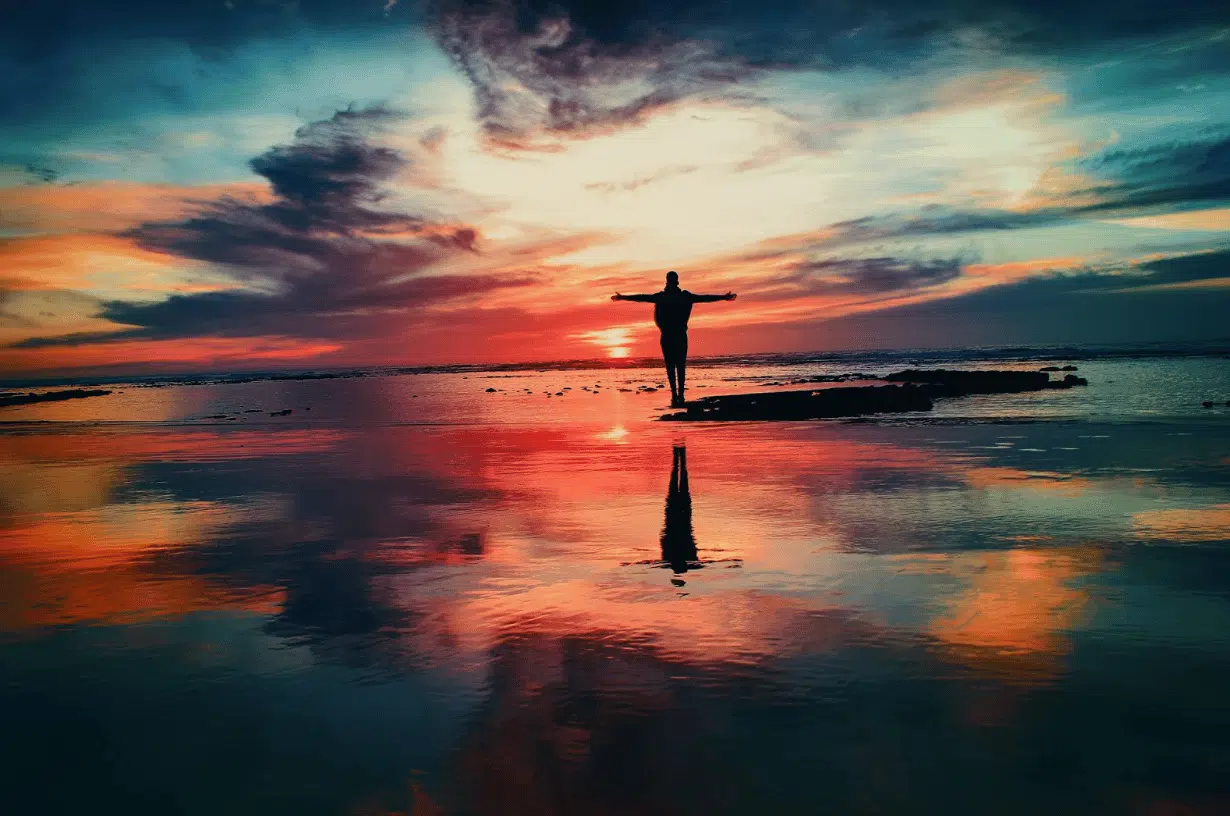
Richard Rudd
Individual
Richard Rudd
Richard Rudd is a mystic, author, award-winning poet, and international spiritual teacher. Rudd is the author of the seminal spiritual book ‘The Gene Keys‘ and ‘The Art of Contemplation,’ as well as several other books, audio series, and courses.
Born and raised in England, Rudd attended the University of Edinburgh, where he immersed himself in comparative religion, Jung and psychology, and esoteric mysticism while earning a master’s degree in English literature and Metaphysics. A born explorer, Rudd has traveled the world extensively and studied with great teachers in the East, traveling through the Himalayas, the Pacific, the Artic, and the Americas.
In the United States, Rudd began a deep course of study with Taoist master Mantak Chia, later becoming an instructor of Qigong and Taoist meditation. Rudd also met Grand Master Hua Ching Ni, a renowned Taoist teacher and an expert in the I Ching. Master Hua Ching Ni had a profound influence on Rudd, empowering him to become a teacher of the Tao. Rudd lived in Manhattan, Oregon, and Hawaii during this time before returning to the UK in 1998.
Rudd’s inner journey began early in his life as he experienced strange energies rushing through his body, but it all culminated in a profound spiritual experience at the age of 29. Once Rudd returned to England, he had a spontaneous awakening experience that radically changed his life. He spent three days and nights in what he described as a ‘field of limitless light,’ during which he was entrusted with sacred teaching – the wisdom of the Gene Keys.
The next seven years were a challenging period for Rudd. He tried to fully integrate the powerful spiritual transmission he experienced, struggling to come to terms with his glimpse of a higher reality. During this time, Rudd met Ra Uru Hu, the founder of the Human Design System, and became a student of Human Design. Together with the I Ching, this would inform the greater synthesis that became The Gene Keys.

While writing The Gene Keys, Rudd amalgamated a multitude of different sciences, spiritual streams, and transmissions, including biology, genetics, psychology, quantum physics, sociology, astrology, secret geometry, Tarot, and Kabbalah, along with mystical, indigenous, and esoteric knowledge from various cultures and timelines. Once the book was written, Rudd began sharing its spiritual teachings, showing how they could be applied to our everyday life to bring a deeper sense of purpose and fulfillment in our relationships while significantly increasing our health and prosperity. The Gene Keys continue to grow in popularity and have brought together a global community committed to modeling the higher principles described in the book.
As a mystic and a spiritual teacher, Rudd is known for his gentle spirit and active encouragement of his students and community to connect with the divinity of our everyday lives through work, family, and relationships. But, as he says, he is not a guru but an ordinary, fallible man. However, for us, he is an inspiring teacher of the greater good and a worthy World Happiness Awards laureate. Join us in our celebration of people and communities, making this planet a better place for all!
Health and happiness are two sides of the same coin. We recognize institutions and individuals in the health sector making a major impact, creating unique conditions for happiness and well-being within their organization or communities.
Health
Office of the U.S. Surgeon General
Community
Office of the U.S. Surgeon General
Dr. Vivek H. Murthy, the U.S. Surgeon General, has issued a Framework for Mental Health and Well-Being in the Workplace. It is a compelling call to action for employers to ensure their employees’ safety and well-being, especially those at risk.
It is a fact that our workplaces play an important role in our lives. Work can positively and negatively affect our physical and mental health. One of the things that the COVID-19 pandemic has highlighted is the importance of balancing work and personal life.
According to recent surveys:
- 76% of U.S. workers reported at least one symptom of a mental health condition
- 84% of respondents said their workplace conditions had contributed to at least one mental health challenge
- 81% of workers reported that they will be looking for workplaces that support mental health in the future
These alarming numbers prompted Dr. Murthy to release the Framework and offer a foundation that workplaces can build upon. It is built on five essentials for mental health and well-being in the workplace and is on the worker’s voice and equity. Each essential is rooted in two universal human needs shared across roles and industries.
- Protection from Harm (Safety, Security)
- Connection & Community (Social support, Belonging)
- Work-Life Harmony (Autonomy, Flexibility)
- Mattering at Work (Dignity, Meaning)
- Opportunities for Growth (Learning, Accomplishment)
- Protection from harm focuses on creating physical and psychological safety conditions. Safety entails safeguarding all employees against physical and non-physical harm, such as injury, bullying, discrimination, illness, and harassment. Security refers to ensuring that all employees feel financially and professionally secure.
- Connection and community foster positive social interactions and relationships in the workplace. Social support refers to having networks and relationships that offer physical and psychological help and can mitigate loneliness and isolation. Belonging means being an accepted member of the group.
- Work-life harmony focuses on professional and personal roles that can create work and non-work conflicts. In this context, autonomy means how much control employees have over when, where, and how they perform their work. Flexibility refers to the ability to work when and where is best for the worker.
- Mattering at work focuses on showing workers that their work matters. Dignity, in this case, refers to the sense of being respected and valued. Meaning refers to the sense of greater purpose and significance of one’s work.
- Opportunities for growth focuses on helping organizations create more opportunities for workers to reach goals based on their skills and growth. This way, workers become more optimistic about their abilities and more willing to contribute to the organization. Learning focuses on acquiring new skills and knowledge on the job. Accomplishment refers to the feeling of meeting goals and making an impact.
The Surgeon General’s Framework for Workplace Mental Health and Well-Being calls for employers to step up to their responsibilities and shift from thinking about well-being and mental health as an individual thing to a collective priority.
Creating a company culture that is mentally healthy and where everyone can thrive is incredibly important, and that’s why the Office of the U.S. Surgeon General and Dr. Murthy is one of this year’s World Happiness Awards laureates. Join us in our celebration of people and communities, making this planet a better place for all!
Thomas Hübl
Individual
Thomas Hübl
In today’s interconnected world, humanity has unprecedented access to information about the disasters and tragedies happening worldwide. Still, instead of becoming more informed and engaged, people are getting overwhelmed. They are experiencing compassion fatigue, a condition of emotional and physical exhaustion leading to numbness, depression, and indifference.
But the problem with all of this isn’t just our inaction. If humanity continues to turn away from the world’s suffering, it will perpetuate painful cultural shadows that lay behind collective and historical trauma. Global trauma, according to Thomas Hübl, a renowned spiritual teacher, mystic, and author, is at the heart of many atrocities and conflicts (past and ongoing) that plague the world today.
He explains, “Collective trauma is not an idea; it’s a tremendous amount of energy that hasn’t been processed yet but influences our daily thinking and feeling, and relationships. It has created shadow structures in society that we assume are normal. The only way to address this is to create conscious structures that will support resourcing and awareness processes.”
Once a paramedic and medicine student, Thomas Hübl left his studies to spend four years in deep meditation in an independent retreat in Czechoslovakia. This gave him a new direction in life, centered on teaching meditation and mindfulness-based awareness techniques.
Once he came out of the retreat, Hübl began holding his own retreats, incorporating his profound realizations with a passion for science. Hübl’s retreats and online courses, many of which he co-teaches with academics, are centered on science and what he refers to as mystical principles taken from wisdom traditions of Taoism, Buddhism, and the Kabbalah.
In the early 2000s, when he began hosting retreats in Austria and Germany, attendees started speaking up about the intergenerational traumas they had inherited from World War II. This inspired Hübl to devise the “Collective Trauma Integration Process,” a model that encourages participants to open up and share their thoughts and feelings in an atmosphere of trust and safety.
Over the years, Hübl started inviting Germans and Israelis to meditate together and work through their histories. The idea of nurturing ‘pockets’ of clarity throughout the world inspired Hübl and his wife, the Israeli artist Yehudit Sasportas, to create “The Pocket Project,” a non-profit that supports the healing of collective trauma throughout the world.
The project was launched in 2017, and since then, similar initiatives have emerged in Israel, Argentina, and the U.S., intending to explore the country and regional trauma. Participants from his early training courses have launched the Witnessing in Empathy, an offshoot initiative that hosts meditation retreats at the former Birkenau and Auschwitz concentration camp sites.
Since 2019, Hübl has hosted the annual Collective Trauma Summit, which brings together over one hundred speakers and more than 100,000 participants worldwide. He leads training programs and workshops at Harvard Medical School, Mobius Institute, California Institute of Integral Studies, Ubiquity University, Garrison Institute, and Science and Nonduality Conference.
Hübl’s amazing and profound work towards individual and global restoration and healing is what makes him an ideal World Happiness Awards laureate. We are proud to see him on this list, and we invite you to join us in our celebration of such people and communities, making this planet a better place for all!
Exponential and Transformative Technologies are shaping the way we experience the world and ourselves. We need to design tech that enhances our well-being and we want to recognize the individuals and institutions working on inventions that enhance happiness and balance morality and ethics within their creations.
Technology
The Digital Wellness Institute
Community
The Digital Wellness Institute
We all know the amazing benefits that digital technology provides to us. However, too much of anything is bad. With so many people spending more than half of their day on some device, we cannot ignore the negative effects of too much screen time.
Digital technology can negatively impact our sleep, mental health, relationships, and ability to be productive and focused on work. What is needed is a targeted approach to improving digital wellness in order to create lasting cultural and behavioral change – once and for all.
The Digital Wellness Institute provides the solution to this problem. This organization is a catalyst for transformational change in the understanding and implementation of digital wellness practices. It offers certificate programs and other educational resources to equip learners with the terminology, models, and tools necessary to create positive, sustainable change through the use of technology.
What is digital wellness? It is the optimal state of health and well-being that any technology user is capable of achieving. The team behind the Digital Wellness Institute is passionate about helping individuals and organizations attain digital wellness and create a positive digital culture – with higher productivity and engagement rates, better retention and recruitment, stronger loyalty from employees and customers, and improved overall well-being.
Their work is based on The Digital Flourishing® model, a patented framework designed to help individuals incorporate beneficial digital practices in their education, employment, or personal lives. The model, which consists of eight elements of digital wellness, was developed in collaboration with North America’s foremost experts and academics.
The elements are:
- Productivity: Enhancing focus, managing distractions, tech literacy, navigating technology with ease, work-life balance
- Environment: Digital clutter, optimizing physical workspaces, ergonomic office design, blue light filters, digital minimalism
- Communication: Positive social comparison, digital culture at work, team communication charters, tech-life balance and boundaries, socially responsible correspondence
- Relationships: Social support, sense of connection, introspection, meaningful interactions, sense of community
- Mental Health: Intentional vs. passive use, self-expression and creativity, positive emotion and inspiration, meaning and purpose, self-care and breaks
- Physical Health: Sleep health, breaks and movement, tech hygiene, eye health, texting and driving, EMF awareness
- Quantified Self: Digital fitness gamification, virtual accountability partners biohacking, health status alerts, tech-enabled health with wearables
- Digital Citizenship: Privacy and security, digital identity and footprint, civil and mindful interaction, digital activism, conscious content consumption
This innovative, empowerment-oriented approach is implemented through courses, certification, and consulting with the objective of enhancing holistic wellness and the understanding that many factors are interconnected.
The Digital Flourishing® model is a conscious approach to digital technology usage that promotes the flourishing of individuals in various aspects of life, enabling them to reap the benefits of technology while avoiding its related ills.
Hundreds of businesses, universities, and individuals have benefited from the Digital Wellness Institute’s guidance on how to improve their mental health and productivity through positive digital culture. Their approach is truly innovative, and we are more than proud to see them as one of the World Happiness Awards laureates. Join us in our celebration of people and communities, making this planet a better place for all!
We want to encourage the design and development of cities and environments nature and human-centric. Spaces that integrate nature and sustainable development as part of their strategy. If we want to flourish those spaces have to help to build communities and to encourage economies of well-being.
Cities

City of Málaga
Cities
City of Málaga
“This is the century of cities and Malaga is going all out.” – Francisco de la Torre, Mayor of Málaga
In 2014, Málaga was recognized as the best place to live in Spain based on a study led by a research group from the European Commission. And in 2018, the Happiness Research Institute ranked the city of Málaga in first place as the “happiest place in the world” based on a study that observed the frequency of smiling people, which demonstrated the overall happiness and positive feelings of people in their environment.
In November 2021, the Mediterranean coastal city won the 2020/2021 edition of the Istanbul Environment Friendly City Award. Also in 2021, the city was voted as one of the best cities to live in if you are a foreign resident. And in 2022, Málaga won the Family Tourism award, a distinction awarded to the city recognized for its family-friendly tourist activities.
From being called one of the best cities to live in as an expat to being known for having the world’s happiest people, Málaga has a lot to be proud of. But just what is it about the city that makes it one of the happiest places to live and work?
The city of Málaga is a municipality in Spain with a population of over 578,000 people, making it the sixth most populated city in Spain. It has a rich history that spans 2,800 years and is believed to have been founded around 770 BC. And today, the city has gained international attention and is well-loved by both visitors and its locals for its festivals, gastronomy, sports, museums, and tourism.
Málaga is home to the Centro de Arte Contemporáneo, Museo Picasso, Carmen Thyssen Collection, the Pompidou Centre, Russian Museum, and Museo de Málaga – making it a world-class art and culture destination. The city is also known for its stunning beaches, gorgeous architecture, bustling nightlife, fun water parks, and natural beauty. However, that’s not all. The city is known for being a place where it’s easy to make new friends and socialize. The locals rank high as some of the friendliest people in the world.
Francisco de la Torre: Mayor of Málaga
Since 2000, Francisco de la Torre has been the mayor of Málaga and has helped transform the Andalucían coastal city into a place celebrated for its work-life balance, cost of living, and high quality of life. Born in Málaga in 1942, de la Torre was only 28 years old when he became the President of the Provincial Council of Malaga. Between 1995 and 2000, he was the First Deputy Mayor, Government Spokesman and Councilor of Planning, Housing, Development and Mobility for the city.
De la Torre has put his degree in Sociology and is a Ph.D. in Agronomy and Specialist in Regional Development into positive action, helping the city of Málaga’s agricultural industry become more effective and profitable while remaining committed to the conservation of natural resources and protection of the environment. Over the decades, the mayor has remained committed to sustainability and tackling climate change.
And in September 2022, the mayor announced his decision that he will be standing for election again in 2023. de la Torre said, “My decision is firm. I have always worked enthusiastically and with passion for the advancement and progress of Malaga. I have, I am and I will again.” To continue cultivating Málaga’s commitment to good urban sustainability, the mayor has expressed his acceptance of the challenges regarding energy efficiency, tourism, waste management, and mobility.
Are you one of the many that have nominated the city of Málaga for the World Happiness Awards? Join us in our celebration of people and communities, making this planet a better place for all!
The World Happiness Community Award recognizes an institution, organization or group of individuals making a profoundly positive impact in their community. Nominate a community.
Community
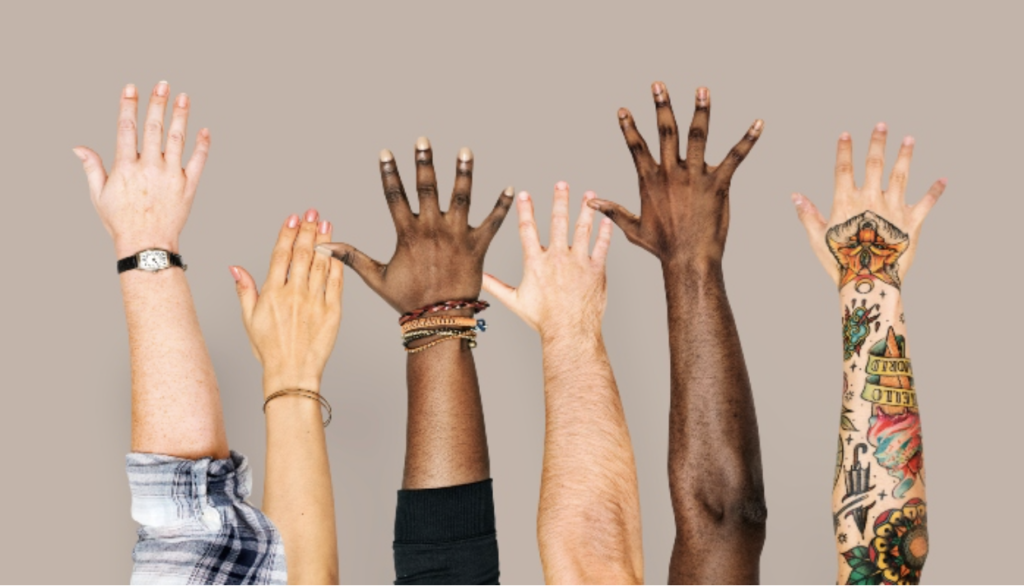
Community of the Year
Community
Community of the Year
If we leave climate change unchecked, we risk undoing all the progress the human race has made.
The reality of climate change often goes ignored by people thinking that hotter temperatures, more severe storms, increased drought, loss of species, the warming of oceans, food scarcity, and changing weather patterns are all beyond our control. However, human activities and the impacts of climate change are interrelated. And the truth is that we can take action on climate change and sustainability.
Meet climate change advocates that we celebrate for their resilience, research, and bravery to raise their voices for the planet. Here are cities and communities leading the way in climate action:
Tokyo, Japan
Tokyo has been pushing a zero-emission strategy since December 2019. The Zero Emission Tokyo Strategy is their action plan to achieve net zero CO2 emissions by 2050. Tokyo began its first program for carbon neutrality in 2010 with a policy requiring commercial and industrial buildings to reduce CO2 emissions. To date, Tokyo boasts total emissions reductions of more than 7 million tons of CO2.
Copenhagen, Denmark
With an expected population growth of 20% over the next decade, Copenhagen is taking on the challenge by combining infrastructural changes with green growth. Copenhagen has a goal to become the first carbon-neutral capital city by 2025. Its 2025 Climate Plan has four pillars: energy consumption, energy production, mobility, and city administration initiatives.
Singapore
Singapore is aiming to achieve net zero emissions by 2050. The republic focuses on key strategies to meet its pledge, starting with improving energy efficiency. Its other programs include reducing carbon emissions from power stations, and the development and implementation of low-carbon technologies. Singapore is already lauded for its intelligent transport systems which leverage smart transportation technology which positions Singapore as one of the least congested communities of its size in the world.
Melbourne, Australia
Melbourne has pledged to halve their carbon emissions by 2025 and is already on the path to reducing emissions to net zero by 2030. Melbourne’s Climate Change Mitigation Strategy to 2050 is compliant with the Paris Agreement. Strategic priorities of the program include 100% renewable energy, zero emissions buildings and precincts, zero emissions transport, and reducing the impact of waste.
Munich, Germany
Munich aims to cut CO2 emissions by 50% by 2030. By 2025, the city aims to produce as much eco-power or green electricity as it can for its plants – making it one of the first cities in the world to run entirely on renewable power.
San Francisco, California
San Francisco has a waste management goal to reduce solid waste by 50% by 2030. Since 2013, San Francisco has been diverting 80% of its waste from landfills. The city has also been investing significantly in clean power to achieve its goal to be carbon-neutral by 2045. The city has also passed legislation that requires large private commercial buildings to run entirely on renewable electricity.
The World Happiness Catalyst Award is for individuals that go above and beyond to bring freedom, consciousness, and happiness to the world. Thanks to these game-changers, every day is a new opportunity to make a positive difference. Discovery, Connection, Gratitude, and Compassion are a major part of their values.
Catalyst
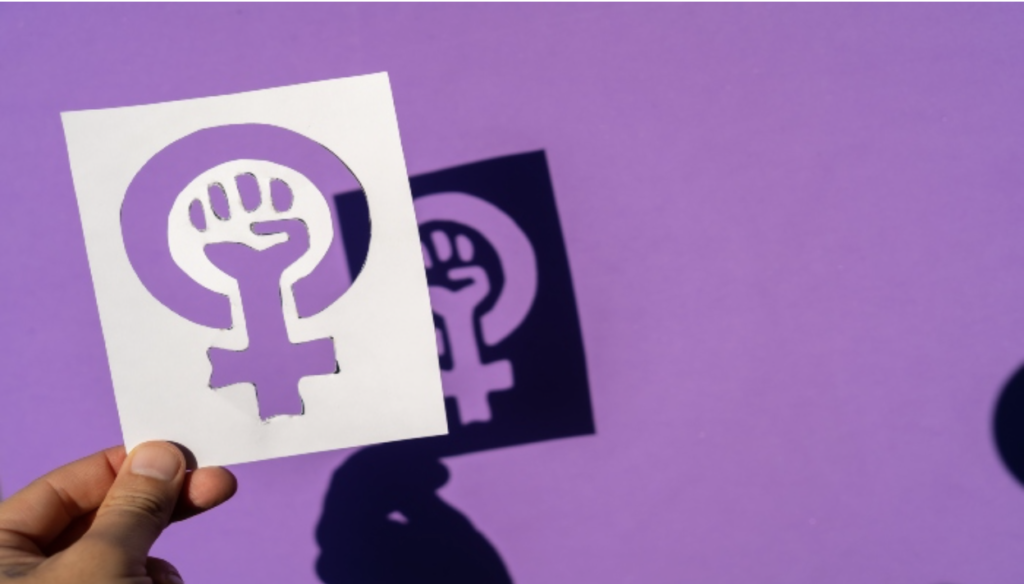
Individual of the Year
Catalyst
Women Raising Their Voices for Equanimity and Equality
Millions of women around the globe continue to be marginalized and experience discrimination simply for being female, the gender that many societies still consider to be inferior to men. Because of socioeconomic discrimination, these women have fewer and poorer life choices and don’t have equal access to education. They are denied sexual and reproductive health rights and are affected by gender-based violence.
At the World Happiness Academy, we celebrate the women raising their voices for equanimity and equality around the world. Here are brave individuals that are leading the fight for gender equality:
Niloofar Hamedi – Iranian Journalist
Niloofar Hamedi was the first to break the story of Mahsa Amini, the 22-year-old Kurdish Iranian woman visiting Tehran and arrested by the morality police for “improperly” wearing her hijab. While in detention, she was beaten into a coma and died three days later. Hamedi had gained access to the hospital where Mahsa was being treated. When Mahsa died on September 16th, 2022, Hamedi put her own life at risk by reporting the story. Her tweet, which featured a photo of Mahsa’s parents hugging and weeping, resulted in nationwide protests. Mahsa’s burial drew crowds and worldwide attention. Women in attendance removed their hijabs, chanting against the violence – a scene that would be reenacted not only across the nation but internationally.
Hamedi would be arrested by security forces for her news coverage and is being held in solitary confinement at Tehran’s Evin Prison. Hundreds of journalists continue to call for the release of Hamedi.
Mijiyawa Rahile – Togolese Activist
Mijiyawa Rahile is a founding member of the Girls’ Motion movement, which campaigns for gender equality, and sexual and reproductive health. Rahile also volunteers at the Women and Development Action Group (GF2D). As an activist in women’s rights organizations, her goal is to strengthen access to information on issues of gender, development, and reproductive health.
Wajeha al-Huwaider – Saudi Activist and Writer
Saudi Arabia has long been recognized by the world as one of the nations with the greatest gender disparities. For a long time, the patriarchal society enforced a repressive guardianship system that required women to get permission from a male guardian such as a father, husband, brother, or uncle for almost all their movements, activities, and decisions – including opening a bank account, getting an education, traveling, getting a job, and getting married.
It wasn’t until June 2018 that women would be allowed to drive again in Saudi Arabia, following a 30-year prohibition. Wajeha al-Huwaider played a key role in the campaign for anti-male guardianship and in lifting the ban on women to drive. Al-Huwaider is also the co-founder of The Association for the Protection and Defense of Women’s Rights in Saudi Arabia.
Major Winnet Zharare – Zimbabwean Peacekeeper
Major Zharare is a champion for equality, women’s rights, and protection. She made history when she became the first Zimbabwean to receive the prestigious United Nations Military Gender Advocate of the Year Award for her outstanding efforts to promote mixed-gender patrols into peacekeeping activities. She was awarded in May 2022 at the ceremony marking the International Day of United Nations Peacekeepers. She has been recognized for her invaluable demonstration of the role that “women play in building trust, advocating for change and forging peace.”
